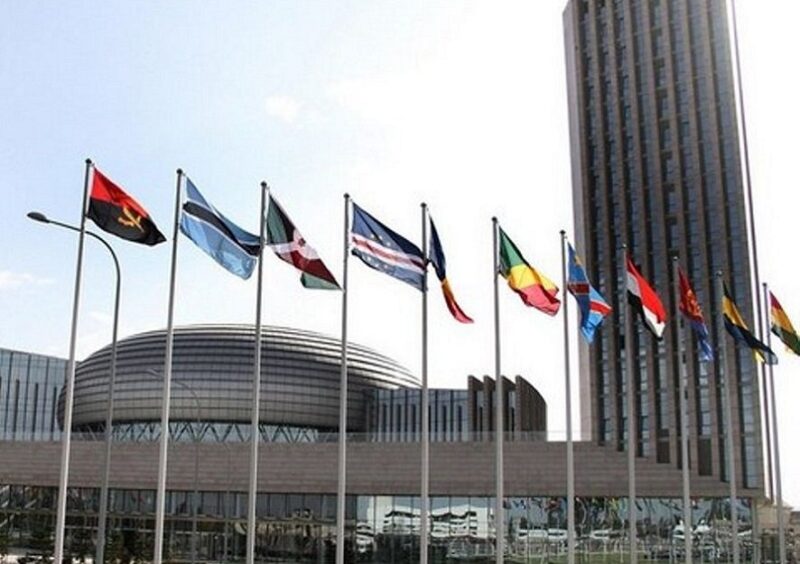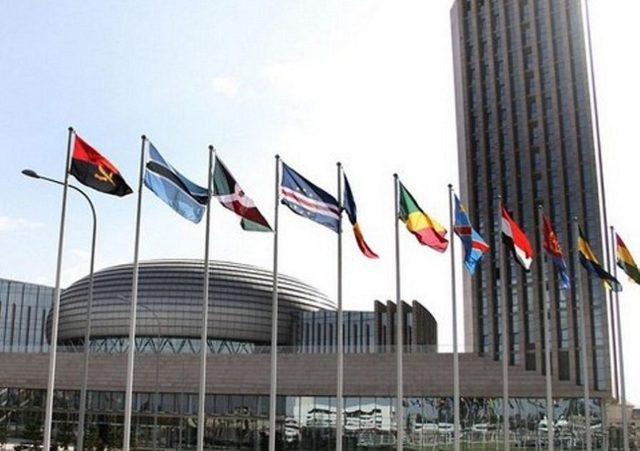Global Issues
Redefining Independence In Africa -By Dele Agekameh

As is the custom every year, Nigeria marked her independence on Monday, October 1, 2018. For 58 years, we have been an internationally recognised state, and it is a feat worthy of celebration. As we celebrate, however, there ought to be room for candid discussions about our true status in the global order. Like many of our African neighbours, we have been forced to grow under heavy reliance on the ‘help’ and direction of other countries, including those that colonised us.

African Union Headquarter
On May 24, 1963, Dr. Kwame Nkrumah of Ghana stood before a gathering of 32 African heads of state and government in Addis Ababa, Ethiopia, to urge his counterparts from other African countries not to rest on the success of the political and administrative independence that the countries present had then attained, but to focus on conquering the economic dependence that was sure to remain for years to come if Africa did not stand with one voice.
The Organisation of African Unity (OAU), was formed after that gathering in Ethiopia in 1963, but it was a looser union than Nkrumah, and some other African leaders present, would have liked. Sir Abubakar Tafawa Balewa, Nigeria’s prime minister at the time, was, interestingly, opposed to an ‘African bloc’ in international relations, thereby signaling his support for a looser union of African states. Irrespective of the various positions in 1963, the African Union that has emerged is closer than was the case in the early years, but it is still relatively loose in comparison to the European Union, for example.
With the benefit of hindsight, it now seems that the idea of African unity was approached in the wrong manner by our leaders back then. Having just emerged from the politically suppressive bounds of colonialism, African states were more focused on their political emancipation and the strengthening of political power on the continent and beyond, when, in fact, a long sighted approach to their economic health should have been of paramount importance going forward.
Nigeria and Africa should have studied the early structure and nature of European cooperation, which was essentially economic. The European Union (EU) of today began as the European Coal and Steel Community in the 1950s, before metamorphosing into the EU. Even now, the EU is still mainly focused on market integration and promoting European markets before any other political motive. In contrast, while the OAU did manage some influence in certain matters, like in the fight against Apartheid, it lacked real power, politically and economically, as the sum of its influence was subsumed in that of a few individual African states, like Nigeria.
Africa’s attempt at economic cooperation was at sub-continental levels, with in the likes of the Economic Community of West African States (ECOWAS), which although conceived as early as 1964, has failed to become a credible economic force, even as it detracts from the African Union. The lack of economic integration between African countries has contributed to the continued economic dependency of Africa and led to African markets and economies being exploited and undermined by outside forces.
Last September, 53 African heads of state gathered in Beijing for the Forum On China-Africa Cooperation (FOCAC). At the forum, China pledged an additional $60 billion to Africa, matching its pledge at the same gathering three years ago. One of the implications of FOCAC is that African countries have finally began to move in the same direction in their trade and economic interactions with the outside world. However, African leaders have still not learnt the hard lessons of history, as they went hats in hand to China, seeking aid, disguised as economic partnership.
President Xi Jinping of China has always said that the intention of China’s cooperation with Africa is to create a win-win relationship of equal partners, by providing much needed infrastructure to the continent, based on trade and market concessions only. What he failed to mention was that Chinese policy on Africa is a direct challenge to American and European influence in the continent. This is evident in the unveiling of a strategic Chinese military base in Djibouti, which is also the location of America’s only military base in Africa.
As Patrick Lumumba, the renowned Kenyan lawyer, noted at the Rwanda National Security Symposium in May 2018, the “new colonial project” requires that Africa must remain within the sphere of influence of the self-appointed superiors and masters of the continent. China is now feeding into this philosophy having come into its own on the world stage. China’s policy on Africa is a bad commentary on how Africa is perceived in the outside world as an instrument to be exploited and used in the propagation of dominance on the global stage.
African countries are now playing a game of favourites with world powers, in mortgaging their critical resources and infrastructure, instead of leveraging those resources to become a real force in the international community. The continent has been thrust into chaos by our own ineptitude and the subtle but present influence of outside forces that are more concerned with their own prosperity than the economic welfare or awakening of the people of Africa.
The Europeans and the Americans have now issued warnings to African countries about the dangers of aggressive Chinese investments in Africa and the likelihood of it being a debt trap for dependence; but then such would be expected of rivals who are unhappy with the arrival of a new player in their systematic control of Africa’s resources. There is nothing the Chinese are doing in Africa today that the Americans and Europeans have not done here.
China and our usual exploiters have all been able to perpetuate their colonial influence on this continent because we have not figured out how to attain economic independence. As Lumumba says, success in this regard must begin with personal conquest. We must conquer our own aid seeking mentality to be able to start taking our fates in our own hands. We must conquer our own inferiority complex, which was left as a parting gift when the colonialists reluctantly returned to their countries.
There is outrage at the Chinese because Djibouti may have granted exclusive rights to the Chinese over docks in its Chinese-built harbour; Zambia may have entered into uncomfortable agreements for its Chinese-built power infrastructure; and Kenya has given exclusive rights to a Chinese firm for mapping surveys of mines in the country. In truth, things like these have happened in Nigeria and the wider African continent for decades, with Shell, Chevron, Total, ENI, Haliburton, Julius Berger etc. being the conduits for harvesting Africa’s wealth by their home countries.
As Nigeria marks her 58th independence, there is plenty to ponder on, especially if we are serious to provide the leadership we so desperately want to provide for the whole of Africa. Our independence will never be complete without economic independence, and the strategy for that can only be an African strategy, as Nkrumah noted many years ago. Right now, there are no indications that any African country is successfully resisting the economic influence of the neo-colonialists at our gates, simply because many are too weak on their own.
Straight aid from these colonialists has not been helpful in advancing our cause for economic emancipation, and poorly negotiated infrastructure deals (which also exist in Nigeria) will prove to be no better. There should be well thought out guidelines for infrastructure agreements in African countries, one that can stand the neo-colonial test and still give value to the host countries. Until we stop mortgaging our economy, we cannot rightly celebrate.
Complacency about what we achieved in 1960 is what led to the unwanted results we have had in almost 60 years. China is said to have been able to pull about 800 million of its people out of poverty in 30 odd years. Coincidentally, its trade relations with Africa increased by 700 per cent in the 1990s, and today it is Africa’s biggest trade partner. Our resources helped make China what it is today. It is time to open our eyes and liberate our people from inexplicable poverty.
For comments, send SMS (Only) to 08058354382


















